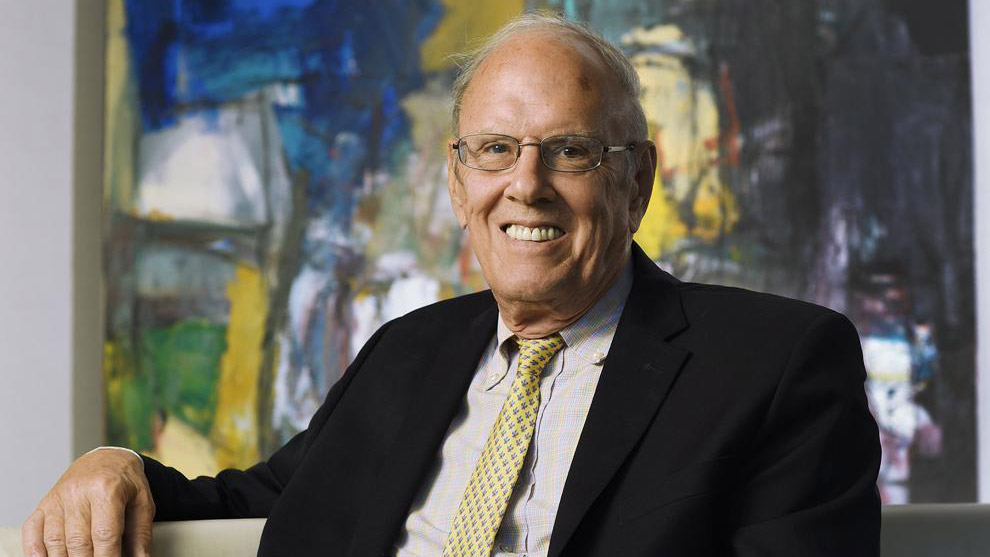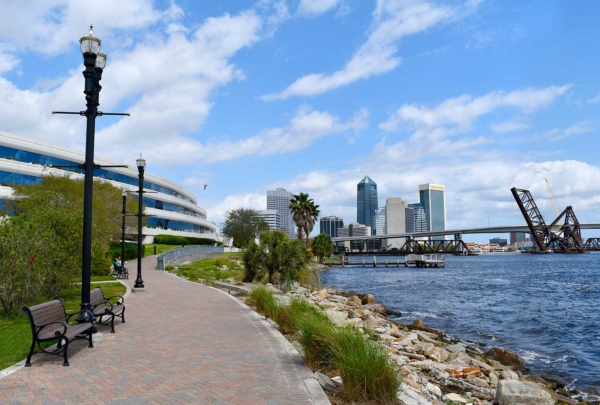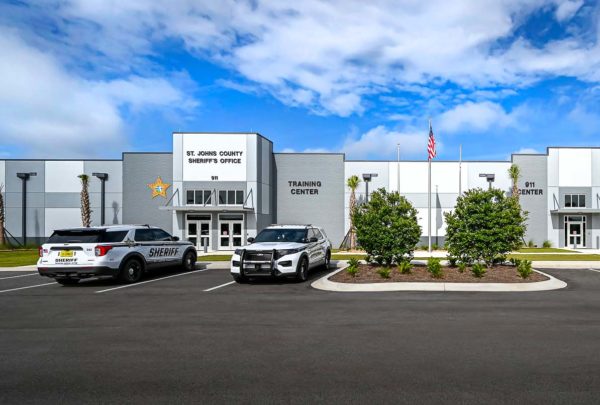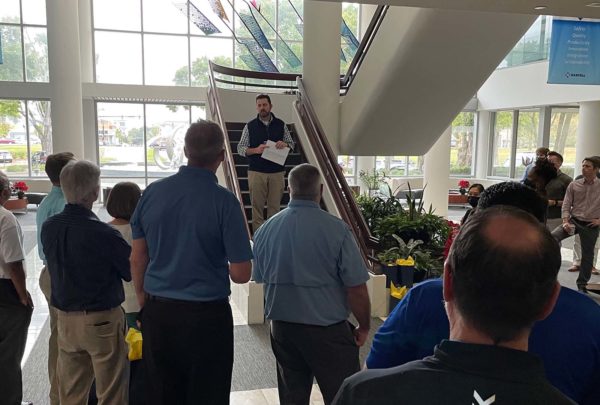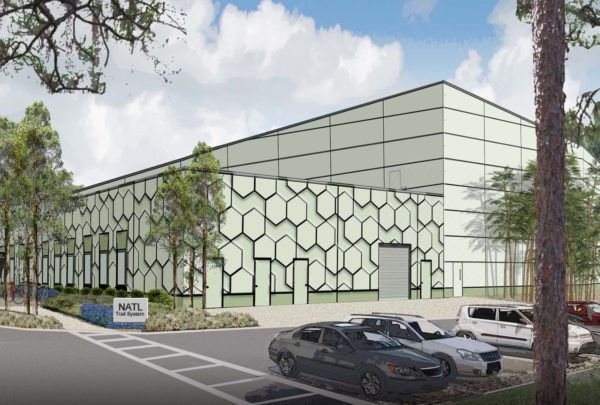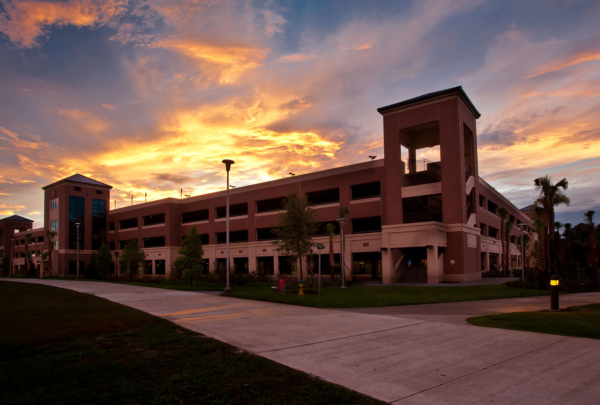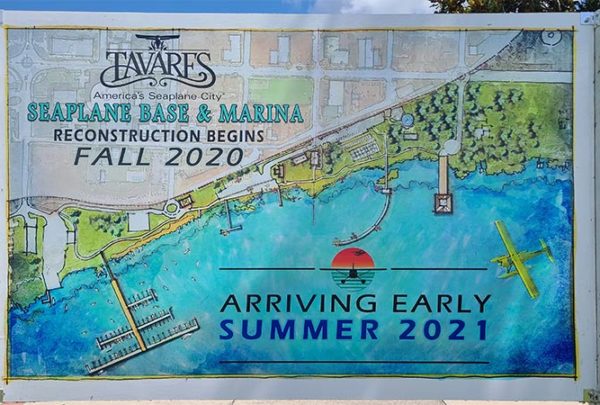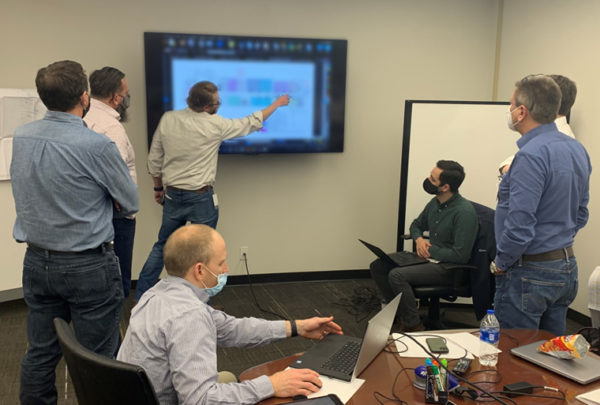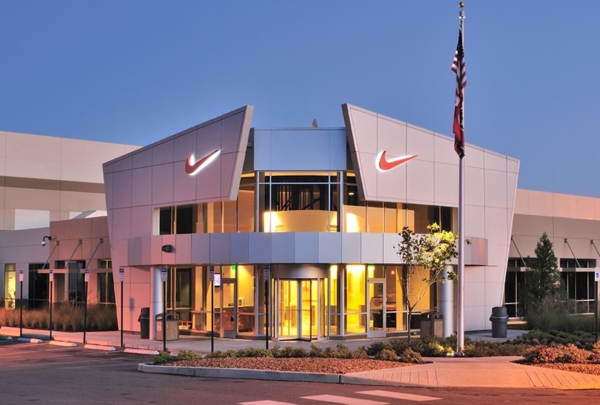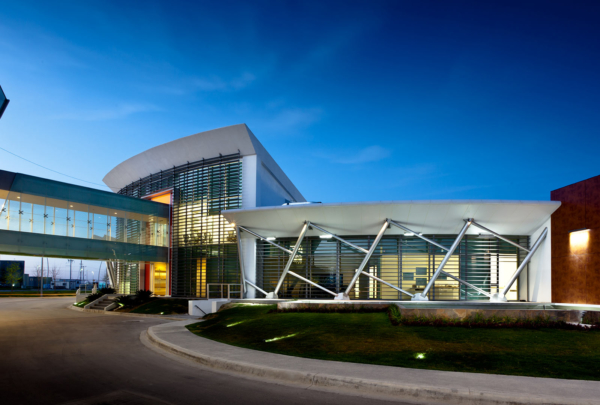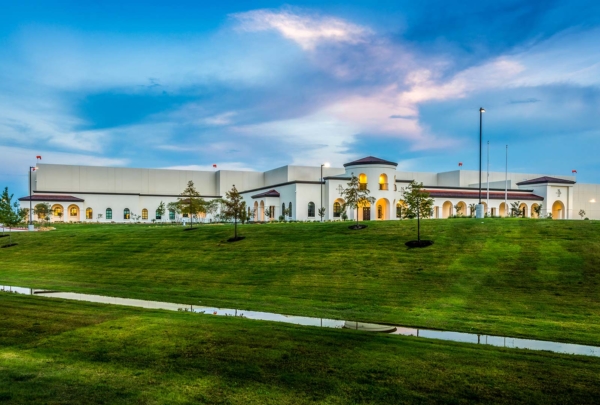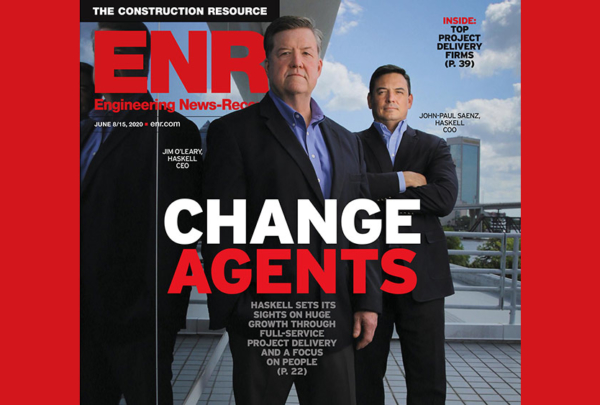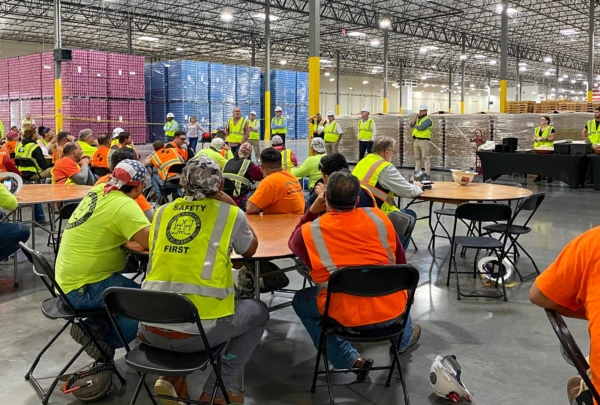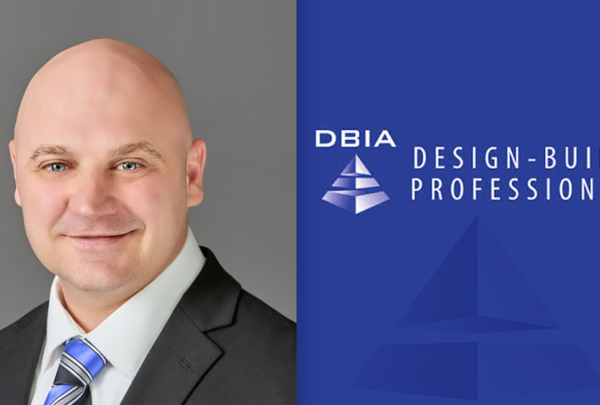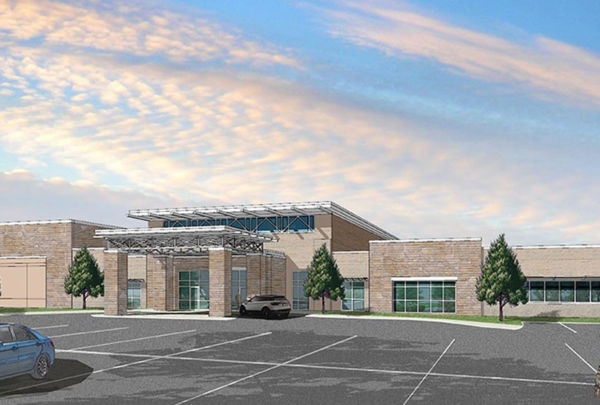In announcing that Preston Haskell would receive Engineering News Record Southeast’s 2020 Legacy Award, the magazine wrote that Haskell’s founder “has been one of the design-build industry’s most prominent and persistent promoters.”
The selection criteria go beyond professional acclaim, outlining that regional editors choose individuals “who have achieved a lifetime legacy of service, both to the AEC profession and the community.”
By either measure, Preston Haskell is the archetypical honoree.
He moved to Jacksonville, Florida, in 1962 and founded Haskell, then called the Preston H. Haskell Company, in 1965. Over the next five-and-a-half decades, he tirelessly championed design-build and integrated project delivery while serving as a pillar of the community that he adopted as his home.
Even in a lifetime bejeweled by awards and distinctions, Haskell said he appreciated the Legacy Award because it validated his and his company’s drive to provide the greatest possible value.
“I think it is a tribute to the basic principles of project delivery that our company has espoused from the very outset, and that is integrated project delivery – design-build, engineer-procure-construct and other variations upon the concept that one entity is responsible for the completion and performance of the project,” Haskell said. “From the outset, we've varied and expressed this in a lot of different ways. But back in the ‘60s and ‘70s, our watchwords were No. 1, lower cost; No. 2, time savings; No. 3, reduced administrative burden on the client; and No. 4, certainty of outcome and singularity of responsibility.”
Design-build was little-known in the mid-20th Century, which Haskell learned even before he left home.
“I was probably in prep school and one day discussing my future with my father,” he recalled. “I said, ‘Dad, I would like to be both a contractor and an architect,’ and he said, ‘No, no, son that just isn't done.’ I disregarded my father and continued on that track.”
He would earn a bachelor’s degree not in architecture but civil engineering from Princeton and, subsequently, a master’s degree in Business Administration from Harvard, a period through which his belief in integrated delivery only grew.
“I remember, in particular, the Austin Company,” he said. “They were a leading, if not the leading, design-builder of non-residential building construction. So, the idea of integrated project delivery was not totally unknown, and the Austin Company probably influenced me as much as anything. They would customarily run a full-page advertisement in Fortune magazine, and I would find a copy of Fortune and read and learn as much as I could in the pre-internet days about a relatively obscure company. That had a big impact. I emulated a great deal of what the Austin Company had done.”
Along the way, the Austin Company faded from prominence. And after founding the Haskell Company, Preston Haskell took up the design-build banner.
Against staunch opposition from the American Institute of Architects (AIA), he pushed through laws in Florida that allowed corporations to practice architecture and made his company the first in the state to identify itself as an Architecture, Engineering and Construction practitioner.
He pushed Haskell to find innovative ways of serving clients more effectively and holistically. The company pioneered tilt-up construction and started and grew its own steel-fabrication operation. It developed and acquired the engineer-procure-construct (EPC) capabilities necessary to deliver turnkey processing, manufacturing and packaging facilities. It expanded across the country and around the world. It developed deep relationships that have led to more than 5,000 completed projects.
In 1993, Preston Haskell gathered a small group of industry allies in the company’s offices on the St. Johns River for meetings in which the Design-Build Institute of America (DBIA) was conceived. To ensure great leadership for a solid start, he personally guaranteed two years’ salary for the first executive director.
Today, the DBIA comprises more than 5,000 members across 14 regions. And today, design-build delivery accounts for more than 40 percent of all construction spending in the United States.
In a lifetime filled with appreciation and accolades, the Legacy Award is well-justified.
“The confirmation of our initial philosophy – to see it 50-plus years later as widely accepted and widely adopted – is very meaningful to me,” he said. “What I'm proudest of is our team of the people who constitute The Haskell Company, of the people who make it successful and profitable and well-regarded, of the people who manage our projects, of the people who recruit and develop and retain the very best people in the industry.
“An organization like ours doesn't have much in the way of fixed assets. Its principal assets go down the elevator every night. Therefore, our principal responsibility is to recruit, retain, and develop the very best people, and I think we have accomplished that. If you've got great people and you show them effective leadership, you give them responsibility, you give them the resources that they need to do a good job, then that will result in a very successful enterprise.”
Click here to visit the ENR announcement.

